Egg Donor vs Frozen Egg Bank: Which to Choose?
Choosing between a donor egg and a frozen egg bank is a big decision for those planning their families. With more egg-donor-vs-frozen egg-bank options, people have to think carefully about their fertility options. Whether you pick a fresh egg donation or a frozen egg bank, each choice has its benefits and things to consider. We’ll look into these reproductive technology options to help you find the right one for your third-party reproduction journey.
- Book an online appointment: Get a free online consultation.
- Call\W:+91-8800481100 Email:neelam@ivfconceptions.com
The main difference between using an egg donor and frozen eggs from an egg bank is that, in the case of an egg donor IVF, you will recruit an egg donor, and fresh eggs harvested and fertilized same day. On the other hand, frozen eggs from banks, are harvested in the past and used for IVF when you wish to.
More Resources To Read:
IVF Egg Donation in Georgia Country: A Guide
Essential Elements of a Surrogacy Agreement
Single Parent Surrogacy: A Path to Parenthood for Singles
Key Takeaways
- In vitro fertilization (IVF) with donated eggs has an average success rate between 45.8% and 53.9%.
- Fresh egg donations may lead to higher pregnancy rates, but there can be fewer available donors.
- Frozen egg banks offer more convenience, but the available cohort may be smaller.
- Factors such as personal preferences, cost, and availability should be considered when choosing between fresh egg donation and frozen egg banks.
- Consulting with a healthcare provider is crucial to determine the optimal fertility treatment option for your assisted reproductive technology needs.
Understanding Egg Donation and Egg Freezing
Egg donation and freezing have grown in popularity thanks to new reproductive tech. These options help people or couples who face infertility or have family plans. They offer new ways to become parents.
The Egg Donor Process
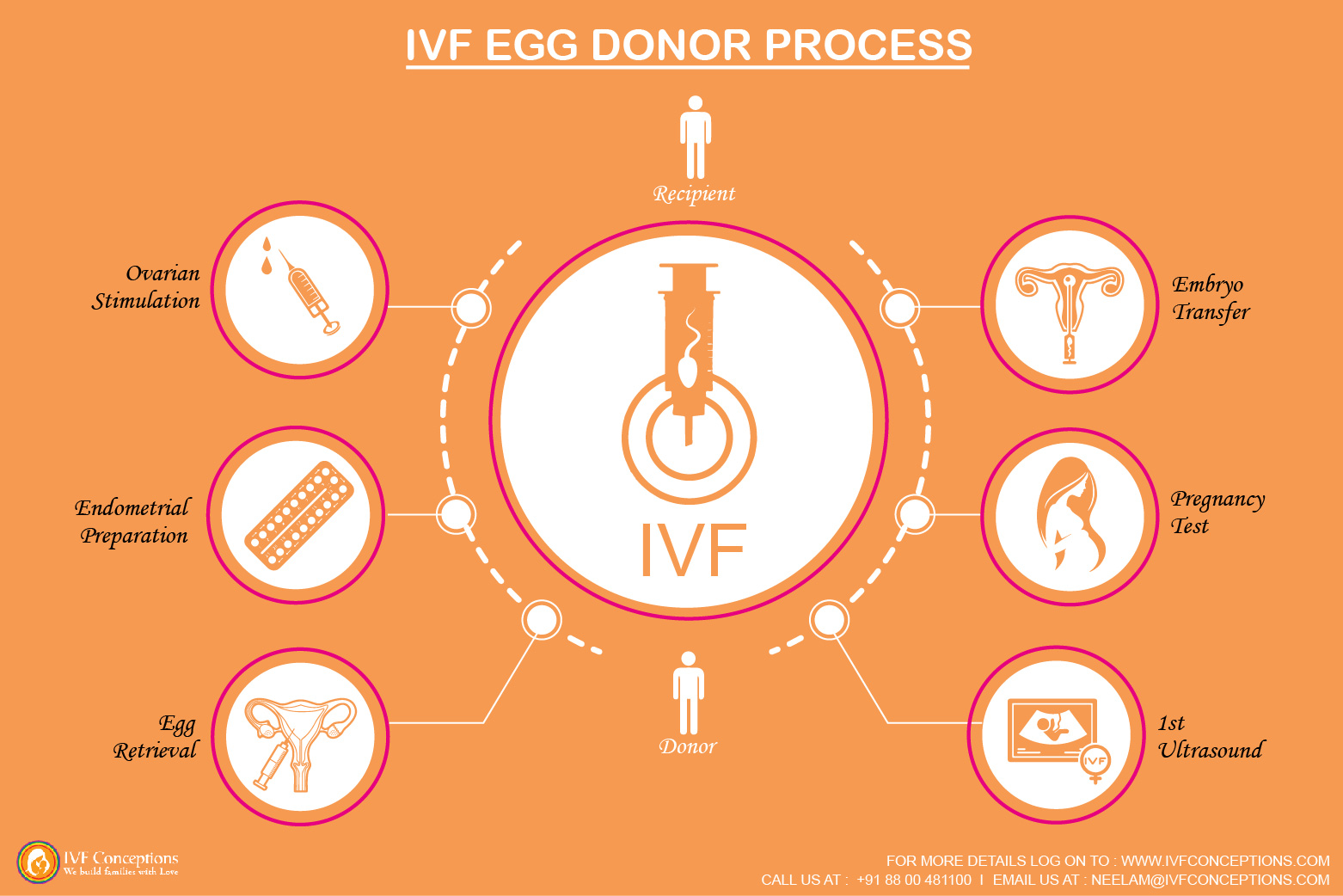
The egg donor process starts with finding and checking a donor. This can be done through an agency or a fertility clinic. The donor must pass medical and mental checks to be sure they’re healthy and ready to donate.
After approval, the donor takes fertility drugs to make more eggs. Then, a small surgery removes these eggs from the ovaries. If it’s a fresh donation, the eggs get fertilized with sperm right away. This creates embryos for implantation. For frozen donation, the eggs are frozen for later use.
| Step | Description |
| Donor Identification and Screening | Prospective egg donors are thoroughly evaluated to ensure they meet the necessary physical, genetic, and psychological criteria. |
| Ovarian Stimulation | The donor undergoes a course of fertility medications to stimulate the ovaries to produce multiple mature eggs. |
| Egg Retrieval | The eggs are gently removed from the donor’s ovaries through a minor surgical procedure. |
| Fertilization and Embryo Transfer | With fresh egg donation, the retrieved eggs are immediately fertilized with the recipient’s partner’s or a donor’s sperm, and the resulting embryos are transferred to the recipient’s uterus. |
| Cryopreservation | In the case of frozen egg donation, the retrieved eggs are cryopreserved for future use. |
The egg donor process is key for both fresh and frozen donations. It helps create embryos and gives people a chance to build their families with the help of reproductive technology.
Fresh vs Frozen Egg Donation
When it comes to egg donation, intended parents have a big decision. Should they choose fresh or frozen donor eggs? Each option has its own benefits and things to consider.
Fresh donor eggs can be fertilized quickly. This means more eggs to choose from, either through an infertility program or an egg donor agency. Studies show that fresh eggs can lead to higher pregnancy and live birth rates than frozen ones.
Frozen donor eggs are more convenient because the donor and recipient don’t have to be in sync. You can pick from a wider range of donors at egg banks. But, you’ll need intracytoplasmic sperm injection (ICSI) and might have fewer eggs to work with.
| Fresh Egg Donation | Frozen Egg Donation |
| More available eggs | Convenience and wider donor selection |
| Higher pregnancy and live birth rates | Requires ICSI and may have a smaller oocyte cohort |
| May be more expensive and require additional coordination | Potentially more cost-effective |
The choice between fresh and frozen egg donation depends on the parents’ needs and wants. It’s important to look at the good and bad of each choice. This way, they can pick what’s best for their family planning and reproductive health goals.
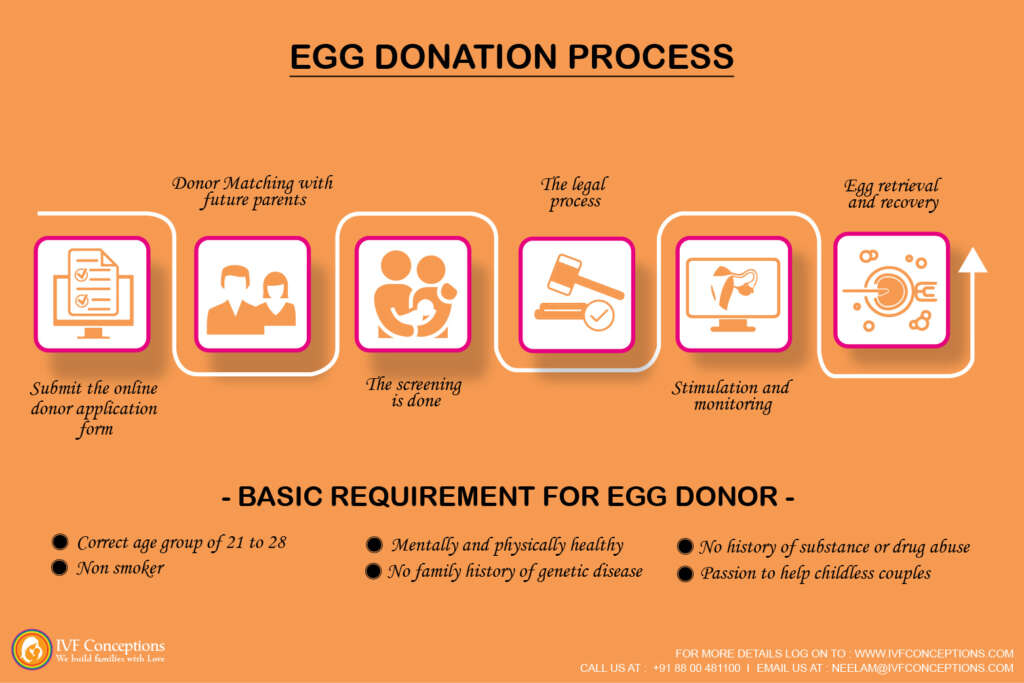
Egg-donor-vs-frozen-egg-bank: Pros and Cons
Choosing between fresh or frozen eggs for assisted reproductive technology is a big decision. Each option has its own set of benefits and drawbacks. Let’s look at the pros and cons of each choice.
Certainly, I can present that information in a table format for you. Here’s a comparison of egg donor vs. frozen egg bank options:
| Aspect | Fresh Egg Donor | Frozen Egg Bank |
|---|---|---|
| Pros | – Higher pregnancy and live birth rates – Eggs fertilized immediately – Good for those wanting to start a family quickly |
– More flexibility (no need for donor-recipient synchronization) – Convenient for busy people – Wider range of donors to choose from – Good option in areas with few fresh donors |
| Cons | – Can be costly – Unpredictable outcomes – Difficulty finding donors from certain ethnic groups in some areas |
– Requires ICSI for fertilization – Potentially fewer eggs to work with |
Fresh Egg Donor Benefits and Drawbacks
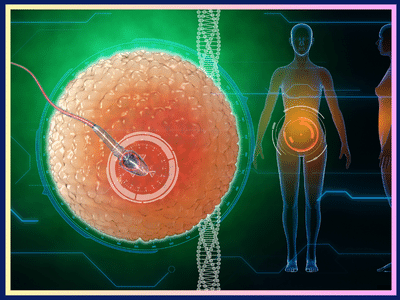
Fresh donor eggs can lead to higher pregnancy and live birth rates because the eggs are fertilized right away. This is great for those wanting to start a family quickly. But, it can be costly and has unpredictable outcomes. Also, finding donors from certain ethnic groups might be hard in some places.
Frozen Egg Bank Advantages and Disadvantages
Frozen donor eggs offer more flexibility since the donor and recipient don’t have to be in sync. This is great for busy people or those in areas with few fresh donors. Plus, there’s a wider range of donors to choose from. But, you’ll need ICSI for fertilization, and there might be fewer eggs to work with.
| Factors | Fresh Egg Donor | Frozen Egg Bank |
| Pregnancy and live birth rates | Potentially higher | May be slightly lower |
| Cost | Can be more expensive | Generally more affordable |
| Donor availability | Limited by location and ethnic diversity | Broader selection and diversity |
| Convenience | Requires synchronization of donor and recipient cycles | Donor and recipient cycles do not need to be synchronized |
| Fertilization method | Can use traditional IVF | Often requires ICSI |
| Egg cohort size | Typically larger | May be smaller |
When deciding, think about your fertility needs, budget, and what you prefer. Talking to a reproductive endocrinologist can help you choose the best option for your goals and increase your chances of a successful pregnancy.
Factors to Consider When Choosing
Choosing between fresh or frozen donor eggs involves several key factors. Your budget, timeline, and donor preferences are crucial. Think about these elements carefully.
-
Key factors in choosing between fresh or frozen donor eggs:
- Budget
- Timeline
- Donor preferences
-
Fresh donor cycles:
- May cost more
- Could provide more eggs
- Potentially better chances of success
-
Frozen cycles:
- More convenient
- Flexible timing
- Might offer fewer eggs
- Often requires intracytoplasmic sperm injection (ICSI)
-
Important considerations:
- Consult with your fertility specialist
- They can assess your specific situation
- They’ll guide you based on:
- Your family plans
- Your budget
- Your preferences
- The fertility specialist will help you choose the best option for your needs
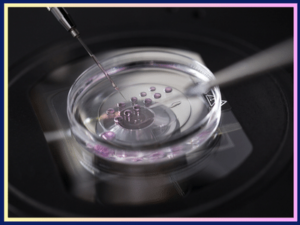
Fresh donor cycles might cost more but could give you more eggs and better chances of success. On the other hand, frozen cycles are more convenient and flexible in timing. But, you might have fewer eggs to choose from. Also, remember that frozen eggs often need intracytoplasmic sperm injection (ICSI).
Talking to your fertility specialist is key to making a good choice. They can look at your situation and guide you. They’ll help you pick the best option for your family plans, budget, and what you prefer.
| Factors | Fresh Egg Donor | Frozen Egg Bank |
| Cost | Typically higher | Generally lower |
| Timing | Less flexible, dependent on donor cycle | More flexible, eggs available on demand |
| Egg Quantity | Potential for the higher number of eggs | A smaller cohort of eggs available |
| ICSI Requirement | Not always required | Typically required |
The choice between fresh or frozen eggs should match your personal needs and your fertility specialist’s advice. Weighing these factors carefully helps you make a choice that fits your family plans and increases your chances of success.
More Resources To Read:
Budget International Surrogacy Options: Affordable Solutions
Standard vs. Guaranteed Surrogacy Programs: Key Differences
Difference Between IVF and Surrogacy: A Comprehensive Guide
Finding a Surrogate: Your Guide to Gestational Carriers
Conclusion
Choosing between fresh or frozen eggs for fertility treatment is a big decision. Both have their own benefits. Fresh eggs might give better success rates but are more complex and costly. Frozen eggs are easier to get and more flexible, but there are fewer of them.
Your choice depends on what you need, your budget, and what you prefer. Things like how fast you want to start, the clinics you can go to, and your health will affect your choice. Talking to a fertility expert can help you decide between egg-donor-vs-frozen-egg-bank options. This way, you can pick what’s best for your fertility options, family planning, and reproductive health.
Whether you pick egg donation or egg freezing, new tech in reproductive technology and assisted reproductive techniques can help. These options give hope to those facing infertility solutions. By looking into these fertility treatment choices, you’re taking a bold step towards the family you’ve always wanted.
Our team has over 14 years of experience facilitating surrogacy arrangements, egg donation, and serving as an advocacy resource for infertile couples and LGBTQ individuals seeking to build families. Till now we have helped and supported thousands of the intended parents with their family-building journey, and we can help you as well. Happy to share the references from the past IPs if needed.
If you’d like to learn more about IVF, Egg Donation, or surrogacy services globally, check out the rest of our website at Georgia Surrogacy Agency. We offer legally secure and affordable surrogacy consulting services for FREE.
Our team has over 14 years of experience facilitating surrogacy arrangements, egg donation, and serving as an advocacy resource for infertile couples and LGBTQ individuals seeking to build families.
For more resources on IVF and Surrogacy, browse our other web page- IVF Conceptions.
For more resources on IVF and Surrogacy, browse our other web page- Complete Surrogacy.

FAQs for fresh egg IVF or frozen eggs from ART Bank
What is the success rate of IVF with donor eggs?
IVF with donated eggs has a success rate of 45.8% to 53.9%. This is considered very successful.
What are the differences between fresh and frozen donor eggs?
Fresh donor eggs can be fertilized right away. This might lead to higher pregnancy and birth rates. Frozen donor eggs are more convenient and flexible. But, there are fewer eggs to choose from.
What is the egg retrieval process like?
The process starts with giving the ovaries fertility drugs to make many eggs mature. Then, these eggs are taken out in a small surgery.
What are the advantages of using fresh donor eggs?
Fresh donor eggs can be fertilized right away. This might increase the chances of getting pregnant and having a healthy baby. It also means you can pick from more donors.
What are the benefits of using frozen donor eggs?
Frozen donor eggs are easier to manage because you don’t have to match your cycles with the donor’s. You also get to choose from a wider range of donors.
What factors should be considered when choosing between fresh and frozen donor eggs?
Think about your budget, how fast you want to start, and who you want to be your donor. Fresh cycles might cost more but could give you more eggs and better results. Frozen cycles are easier to manage and offer more choices.
Source Links
- Fresh vs. Frozen: Which Type of Egg Donation is Right For You?
- Fresh & Frozen Egg Donor Bank | Choosing the Your Donor Cycle
- Donor Eggs Fresh Or Frozen?

Highly esteemed, authoritative, and trusted professional with a 14-year of experience in international surrogacy. Advocate for Secure, Legal, and Affordable International Surrogacy.
Neelam Chhagani, MA (Counselling Psychology) and Holistic Infertility and Third-Party Reproduction Consultant.
Member of European Fertility Society, Best Surrogacy Blogger of 2020, with 300 dedicated blogs, and top contributor on Quora for Surrogacy.

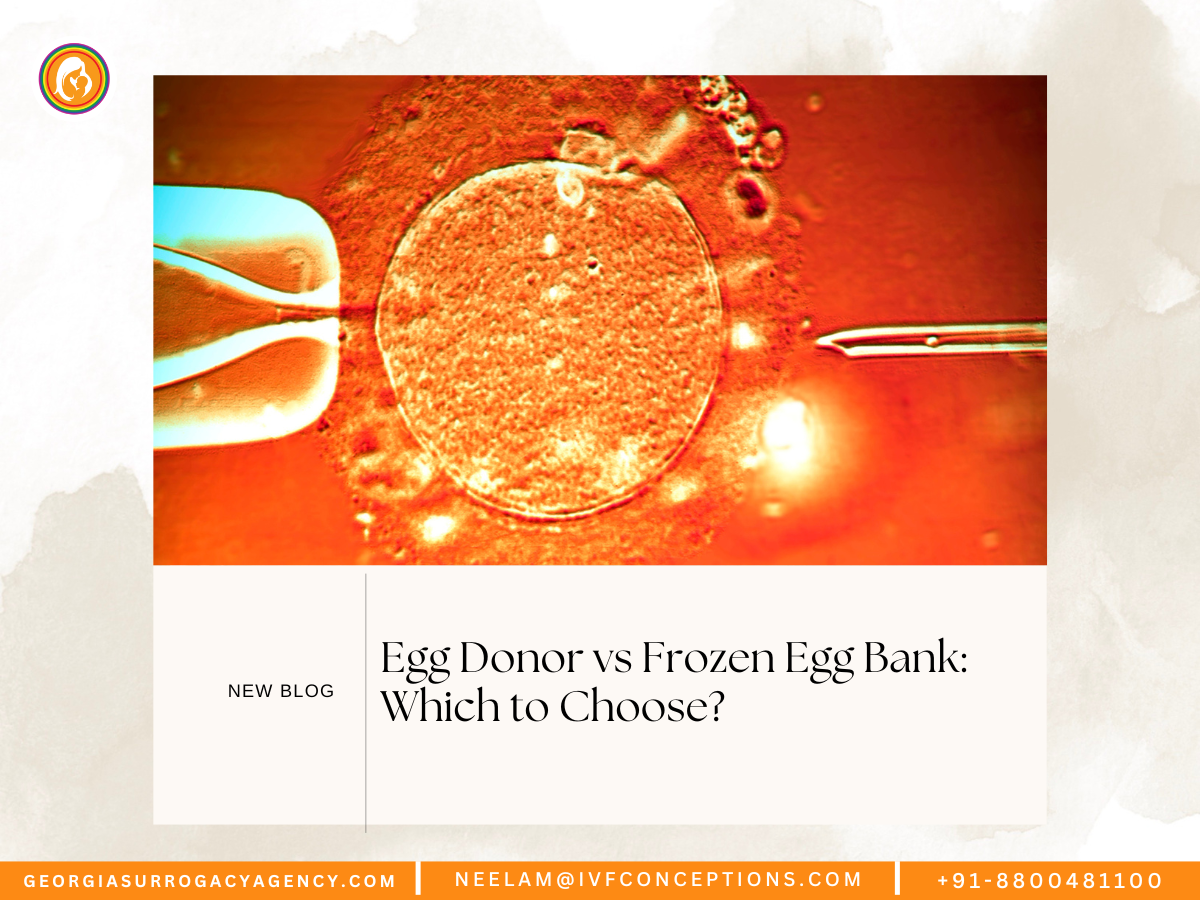
Add Your Comment